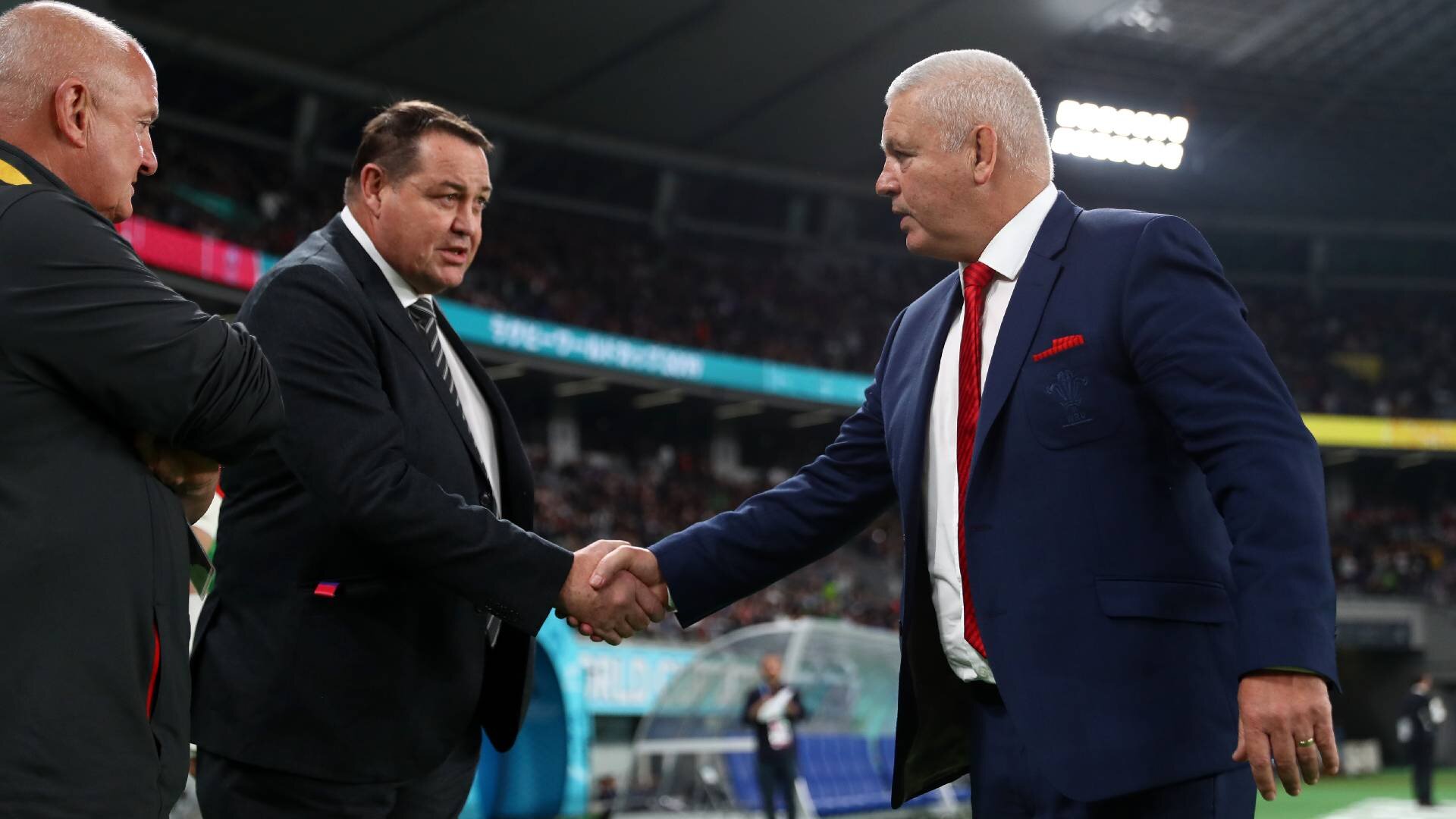'Not sure how that is going to work to be honest' - Steve Hansen's blunt assessment of Warren Gatland's coaching plans with the Chiefs

In the wake of his victorious final clash against long-time rival Warren Gatland, All Blacks head coach Steve Hansen brought into question the departing Welsh head coach’s post-World Cup plans.
Gatland, whose side was comprehensively defeated 40-17 by New Zealand in the World Cup bronze medal final in Tokyo on Friday, is set to leave Wales to take up a four-year deal with the Chiefs in Super Rugby.
It’s a long-awaited return home for the 56-year-old Kiwi, who was born and raised in Hamilton and represented Waikato at provincial level for eight years before going on to coach them over three seasons between 2005 and 2007.
However, as part of his long-term deal with the two-time Super Rugby champions, he will take a year-long sabbatical in 2021 to serve as head coach of the British and Irish Lions on their tour to South Africa.
It will be the third time Gatland has taken charge of the esteemed side, after having led the Lions to a series victory over Australia in 2013, and then to a drawn series against New Zealand two years ago.
Continue reading below…
He also travelled with the team on their unsuccessful tour of South Africa in 2009 as an assistant coach.
No decision has yet been revealed as to who will act as Gatland’s replacement at the Chiefs during his time away in the Republic, although assistant coach Tabai Matson could be handed the role after confirming he has retained his position with the franchise.
Speaking to media following the All Blacks’ final appearance at the World Cup, Hansen queried how Gatland’s decision to take a year away from Super Rugby to commit to another Lions tour would impact the Chiefs over the coming seasons.
“Having him back in New Zealand – not sure how that is going to work to be honest,” Hansen, who will now leave the All Blacks after a 16-year affiliation with the side to take up a management position with Japanese club Toyota Verblitz, said.
“Because he is going to go and do the Lions after that.
“So there is not going to be a lot of continuity there for the Chiefs and him. But I am sure he will work his way through that.”
Warren Gatland’s Wales reign finished with back-to-back World Cup defeats but he still leaves his role as coach with a superb record. #RWC2019 https://t.co/XrwYffWmLi
— RugbyPass (@RugbyPass) November 2, 2019
Gatland, meanwhile, was appreciative of New Zealand Rugby’s flexibility to allow him to split his time between the Chiefs and Lions over the next four years.
He had initially hoped to take six months’ leave from coaching before focusing on the Lions tour, but the offer provided by the Chiefs proved to be too good to turn down.
“I got an approach from the Chiefs and felt if I didn’t take that role, then it wouldn’t be there after the Lions,” Gatland said.
“Thankfully the NZ rugby union allowed me to take a year’s sabbatical, so it will be a real challenge.”
Although he was critical of the unique employment situation his opposite found himself in, Hansen paid homage to the coaching battle he has enjoyed with Gatland since the pair first faced off in the international arena in 2008.
https://www.instagram.com/p/B4Uq45DAFNP/?utm_source=ig_web_copy_link
At that point, Gatland was in his first season in charge of Wales following their pool play exit from the 2007 World Cup in France, while Hansen was nearing the end of his fifth season as Sir Graham Henry’s assistant coach for the All Blacks.
Since Hansen succeeded Henry as the head coach of New Zealand in 2012, he and Gatland have been pitted against each other on numerous occasions as the All Blacks went head-to-head with both Wales and the Lions.
His compliment didn’t come without a little dig at Gatland’s winning percentage against the Kiwis, though.
“I think we have played 10 times, and it might be eight wins (to the All Blacks), one loss and one draw,” Hansen said.
“So it has been competitive, yeah.
“You know he is coaching a team in Wales that I once coached. You take a lot of notice of what’s happening, and he’s done a wonderful job coaching them.”
In other news:



































































